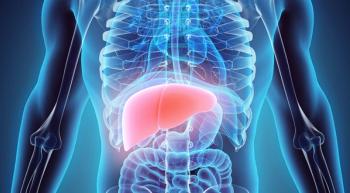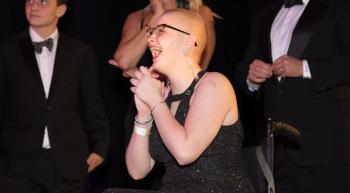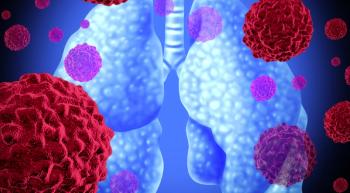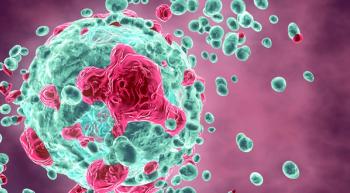Articles by Beth Fand Incollingo

Radiofrequency ablation was statistically on par with surgery when it came to survival after an early recurrence of liver cancer, but surgery provided more benefit if the disease was a bit more advanced.

Whole genome sequencing of blood and bone marrow from patients with acute myeloid leukemia and myelodysplastic syndrome has revealed previously unknown disease subtypes.

At the annual MPN Heroes event, Dr. David Fajgenbaum, who discovered a treatment for his own rare disorder, shared insights on turning hope into action when faced with adversity.

Marijuana use is gaining cultural acceptance as a way to ease discomfort in patients with cancer, but is it safety is still unclear.

Nearly one-quarter of inoperable intrahepatic cholangiocarcinomas shrank enough to make surgery possible after selective internal radiation was added to chemotherapy, a study shows.

The Food and Drug Administration has approved Brukinsa to treat patients with mantle cell lymphoma whose disease has stopped responding to other medications or has recurred.

The founder of Wigs & Wishes explains how the organization evolved to provide wigs to women undergoing cancer treatment and fulfill wishes for children with the disease.

Survivors at risk of lymphedema are asked to follow a standard list of lifestyle adaptations, but two experts say those guidelines may change.

In a gel applied directly to the breasts, the anti-estrogen drug tamoxifen may help prevent cancer and fight DCIS — with few side effects.

During an evening co-hosted by Paula Abdul, the organization fulfilled wishes for four children with cancer and honored a breast cancer survivor and a volunteer.

Liquid biopsies may reveal who needs treatment for recurrent breast cancer — and, just as important, who doesn’t.

Imagine Dragons founded the Tyler Robinson Foundation to help families afford the nonmedical costs of pediatric cancer.

Singer and actress Olivia Newton-John is auctioning off her costumes from the movie “Grease,” along with other clothing and household items, to benefit her cancer hospital in Melbourne, Australia.

Those caring for a family member or significant other with a rare disease — one that affects fewer than 200,000 Americans — may be eligible for a grant allowing them to take some time off.

“Lasting Love” shares a moving and constructive message that may help support youngsters as they navigate a deep loss.

Drug duos that hit kidney cancer with immunotherapy and targeted treatment offer a better alternative to single agents.

The combination use of Keytruda and Lenvima is now approved to treat a subset of patients with advanced endometrial cancer.

A new national strategy for cancer prevention, diagnosis and care aims to make the provision of services and support more equitable across Canada.

Treating relapsed Waldenstrom’s macroglobulinemia takes an individualized approach from a growing list of options.

Before getting breast implants, women should know about a cancer (breast implant-associated anaplastic large cell lymphoma) and an autoimmune syndrome associated with them.

At free NCI clinics, people with some of the rarest disease get tumor analysis, counseling and expert advice.

This one-stop shop offers patients pain-management strategies, emotional support, nutritional guidance and more.

Removing lymph nodes that appear unaffected by ovarian cancer won’t help and might hurt.

When non-small cell lung cancer spreads to just a few sites, therapy can be given with curative intent – and immunotherapy can help delay relapse.

Figuring out whether to take targeted drugs or immunotherapy can be challenging for patients with metastatic melanoma that expresses a BRAF gene mutation, but there are rules of thumb that can help.

The merging of MyLifeLine.org with Cancer Support Community facilitates more comprehensive social and emotional support for patients and caregivers affected by cancer.

Given with each dose of chemotherapy, trilaciclib temporarily puts bone marrow to sleep, helping to prevent fevers, infections and hospital stays in patients with small cell lung cancer.

By going public with the details of their cancer journeys, patients and survivors can pave the way for understanding and support.

By introducing TV and film writers to patients and experts in the cancer community, the Science & Entertainment Exchange is changing the stereotypical ‘hopeless story of cancer.’

In a talk to people affected by melanoma, Michael McGrady described reassessing his values after cancer and how it changed the course of his life.
















